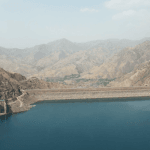A new, multinational report released today found that there is widespread public support for using advanced nuclear energy technologies to generate electricity. Based on a survey of more than 13,000 respondents across eight countries —France, Germany, Poland, Sweden, the United States, the United Kingdom, Japan, and South Korea — the study showed strong support for advanced nuclear energy in each country. Poland, France, and Sweden displayed the highest support, all with at least a 5:1 ratio of supporters to opponents.
Poland was the most favorable country in the survey, with supporters outpacing opponents by 10:1. Among both the general public and self-described supporters or members of environmental groups, over 80% agreed with using advanced nuclear energy. Furthermore, more than 75% of people in Poland believe that nuclear energy is necessary to meet climate goals, the highest level of agreement amongst the countries surveyed.
The French and Swedish populations display a clear consensus on the importance of advanced nuclear energy, with support across the major political parties. In both countries, 69% of respondents either “strongly agree” or “agree” with using the latest nuclear energy technologies alongside other sources. In contrast, only 15% of French “disagree” or “strongly disagree,” and just 13% of Swedes. Moreover, majorities in both countries believe that nuclear power should be the primary choice for energy. Energy independence was identified as the principal reason driving their support for advanced nuclear.
“It is often thought that nuclear power is unpopular. Our results show conclusively that this is not the case, and that nuclear as a source of clean, carbon-free energy commands majority support in every single country. This majority support even extends in most cases to members of environmental groups and Green parties, and shows that policy-makers and investors should not fear public opinion when making urgently-needed decisions about supporting new advanced nuclear deployment,” said Mark Lynas, the co-founder of RePlanet.
A majority of Germans, including environmental group members and supporters, also support advanced nuclear. In the country, which recently closed its last nuclear power plants, 51% of respondents said they “strongly agree” or “agree” with using advanced nuclear energy. Members and supporters of environmental groups had the same results. Overall, supporters outnumbered opponents by a factor of two to one. German supporters also cited energy independence as the strongest argument in favor of using nuclear technology.
“Real-world concerns about energy security and climate change have a way of focusing people’s minds. That is why growing numbers of people in the US and across the world are turning to advanced nuclear as one of the sources of clean, reliable, and secure energy they support,” said Senior Vice President for the Climate and Energy Program at Third Way, John Freed, adding, “It is encouraging that policymakers, including most of the countries surveyed, are responding with ambitious policies that embrace advanced nuclear as part of their energy strategies.”
John Marshall, the CEO of Potential Energy Coalition, which led the design and analytics behind the study, said: “Our approach is to use the most sophisticated tools from private sector consumer research and marketing to explore what people value, their concerns, their priorities, and how they see ‘brand nuclear.’ We follow the data, and what this data tells here is a new story. We’ve known for years that public opinion on nuclear energy has been changing, but we haven’t understood what’s behind that shift or what it means for the clean energy transition. In particular, the degree of support from environmentalists is noteworthy and perhaps contrary to general perception.”
“A robust American energy policy should make energy reliable, secure and clean. Nuclear energy checks each of these boxes and with public support continuing to improve, we are well on our way to an exciting energy future that will enhance our quality of life in the US. and abroad,” said Rich Powell, CEO of ClearPath.
Other recent surveys have also confirmed a shift in public support in favor of nuclear energy — including a Gallup poll last month that found Americans’ support was at the highest level in a decade — but this new report is the first large-scale study to apply a private sector market research methodology to understand attitudes towards nuclear energy across eight countries.
One new finding revealed by the study was that almost all of the opposition to advanced nuclear energy comes from a small, distinct segment of the population — only 15% — whose members are older, skeptical about innovation, and unmovable in their views. All of the other groups identified by the report overwhelmingly support advanced nuclear energy, even if they vary widely in their political outlook, economic position, and views on issues like climate change.
Support for advanced nuclear energy is not partisan, the report found. In all but two countries in the report, Germany and Japan, a majority of the supporters of every major political party also back using advanced nuclear energy. In Germany, 46% of Social Democrats, 43% of the Left, and even 34% of Greens still favored advanced nuclear. It has majority support among all Germans 18 to 34 years old, with 56%.
In Poland, France, and Sweden, the consensus extends beyond political lines and includes strong support for nuclear energy technologies across all age groups. This reveals a unique alignment among their populations, transcending both political affiliations and generational divides.
*This article was produced in cooperation with Third Way.








